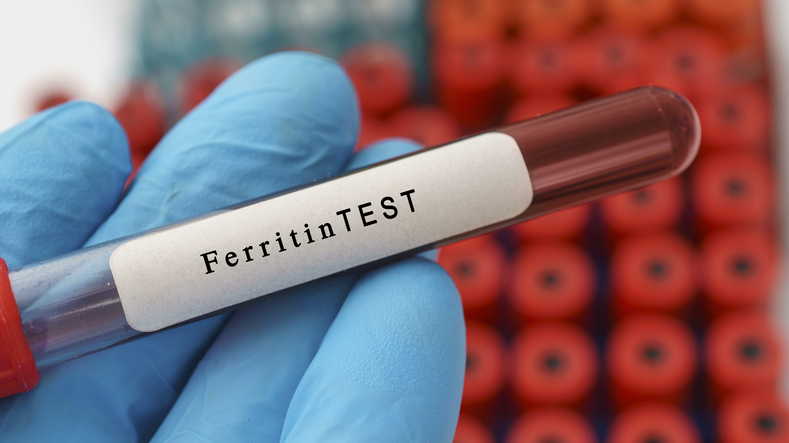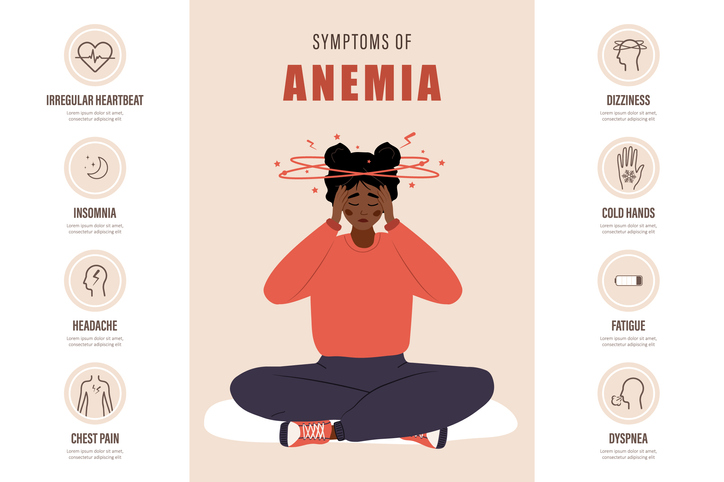Why a Ferritin Test Should Be Part of Every Young Woman’s Proactive Health Routine

By Joy Stephenson-Laws, JD, Founder
When young girls start to grow up and go through adolescence, they are told all about menstrual products and how to get properly fitted for a bra. They may even be told what their birth control options are and what they can expect at their first visit to the gynecologist. What they are not taught, however, is how important it is to take a ferritin test.
What is a ferritin test?Iron also plays a role in the synthesis of neurotransmitters. Think of neurotransmitters as the brain’s communication tool. Without them, your brain wouldn’t be able to tell the heart to beat, your stomach to digest food or your lungs to expand and contract. Neurotransmitters are also responsible for telling your brain to release the proper amounts of serotonin, dopamine, norepinephrine and all the other mood balancing chemicals that are vital to providing the body balance.
Menstruating females are especially prone to iron deficiencies due to the blood loss they experience, however, a recent study conducted by a research team from the University of Michigan found evidence showing that low iron is very common not only in young, menstruating women but also in young girls who have not started menstruating.

Let's go over some of the specific findings:
- 4 out of every 10 teen girls and young women may have iron deficiencies severe enough to cause symptoms, including low energy and dizziness. “But most of them probably don’t know it, because regular health screenings for their age group don’t include a blood test that measures the body’s iron reserves, called a ferritin test, the lead author of the study says,” according to the report from Michigan Medicine.
- 1 in every 17 females (between the ages of 12-21) have low enough levels of iron to be diagnosed with iron deficiency anemia.
- “While the overall iron deficiency rate in the study group was 40%, the rate was about 30% higher among both Black and Latina young women compared with their non-Hispanic white peers. Women from other racial and ethnic backgrounds, taken as a group, also had slightly higher rates of iron deficiency,” (Michigan Medicine).
- The young women who came from family incomes near or below the poverty level had higher rates (24%) of iron deficiency compared to the young women who came from higher income families.
- 27% of the young girls who had never even experienced their first period had low iron levels.
“Iron deficiency is an under recognized problem with adverse impacts, but its symptoms and even those of anemia are normalized in young females,” said Dr. Angela Weyand, lead author of the study.
How can we be proactive?
I think having this knowledge is important. If you are a parent to a young girl, demand that ferritin tests be a part of your child’s routine screenings. If you are a woman perhaps between the ages of 18-21, know that a ferritin test is important. Think of it as one of your non-negotiables. For example, you wouldn’t want to skip your routine pap smear for detecting cervical cancer. I also think that it is so key for young women to stop dismissing their symptoms and discomfort because that is perhaps what they are taught.
It is not normal to constantly feel tired and have low energy. Do not just automatically assume that it is stress or that it is due to a busy lifestyle. If you have particularly heavy periods, you may absolutely want to consider routine ferritin tests. Also know that oral birth control can deplete the body of essential vitamins and minerals. In no way am I suggesting to stop taking birth control, but this is yet another reason why young women must be proactive about diet, testing and supplementation.
Foods to help get iron in your daily diet.
Iron-rich foods include red meat, pork, poultry, seafood, beans, spinach (and other leafy greens), peas, cherimoyas and iron-fortified cereals. I also highly recommend checking out this pH blog about iron deficiencies and food combinations.
A comprehensive nutrient test is always a good idea.
If you are low in iron, chances are you are not nutritionally balanced in general. A comprehensive nutrient test can determine what vitamins and minerals you may be lacking or have too much of (maybe you are not supplementing properly). Either way, a competent healthcare professional can work with you on making the necessary dietary changes and recommend quality supplements if necessary.
Enjoy your healthy life!
Disclaimer: This article is not intended to provide medical advice. Please consult with your doctor or another competent healthcare practitioner to get specific medical advice for your situation.
The pH professional health care team includes recognized experts from a variety of health care and related disciplines, including physicians, attorneys, nutritionists, nurses, and certified fitness instructors. This team also includes the members of the pH Medical Advisory Board, which constantly monitors all pH programs, products, and services. To learn more about the pH Medical Advisory Board, click here.



